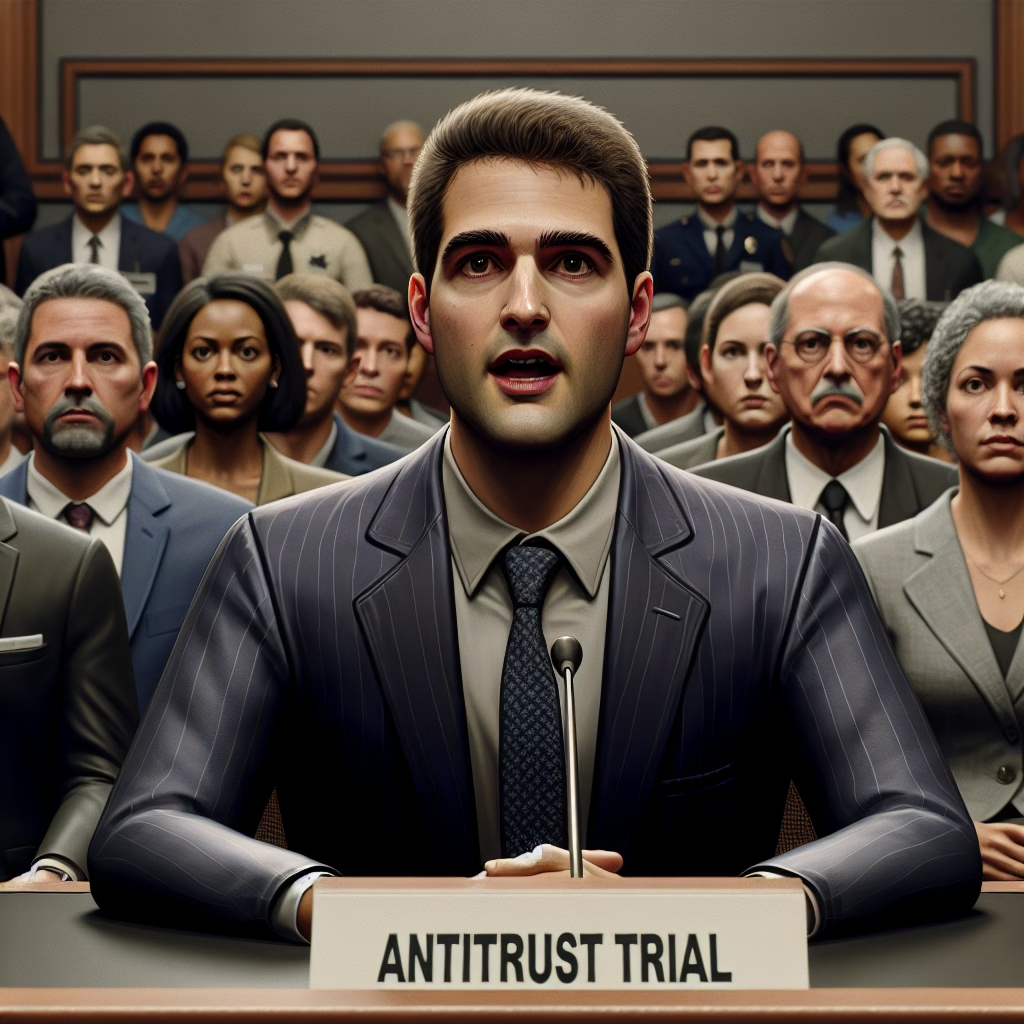In a world where tech giants loom large, antitrust trials can feel like the gladiatorial games of old, with witnesses battling it out in the arena of public opinion. Recently, we had the pleasure (or should I say, the spectacle) of hearing from none other than Brian Acton, co-founder of WhatsApp, at Meta’s ongoing antitrust trial. His testimony is not just a fascinating glimpse into the tech world but also a reminder of how competition in the digital age can be more thrilling than your favorite reality TV show.
The Antitrust Drama Unfolds
Acton’s appearance on the witness stand was akin to watching a blockbuster movie unfold. He took us through his journey with WhatsApp and how Meta, the colossal behemoth that it is, came to acquire his beloved messaging platform. Spoiler alert: it wasn’t all sunshine and rainbows! The trial revolves around whether Meta engaged in anti-competitive practices that stifle innovation—an accusation that could make even the most stoic tech executive sweat.
During his testimony, Acton pointed out some key moments where he felt Meta’s influence could have dampened competition. He revealed that after the acquisition, WhatsApp faced immense pressure to monetize its services in ways that could compromise user privacy—a point that sent ripples through the courtroom and probably raised eyebrows at dinner tables across Silicon Valley.
WhatsApp: A Messenger with a Mission
WhatsApp has always prided itself on being a platform that champions user privacy and freedom of expression. However, Acton’s insights suggest that since its merger with Meta, those principles might have taken a backseat to profit-driven motives. This revelation brings us to an interesting conundrum: can a company truly uphold its founding values while operating under the profit-first mentality of a larger corporation? It’s like trying to keep your diet intact while living next door to an all-you-can-eat buffet!
Acton’s assertion that antitrust scrutiny is essential for fostering innovation highlights a vital point. Without healthy competition, we risk entering a dystopian future where our digital experiences are dictated by a handful of powerful entities. Just imagine a world where every app you download comes with a side of data mining—yikes!
The Importance of Competition in Tech
The crux of Acton’s testimony is not just about WhatsApp; it’s about ensuring that competition thrives in our digital landscape. Antitrust laws exist for a reason: they help level the playing field so that newcomers can compete without being crushed by industry giants. As Acton eloquently put it, “We need to allow new ideas to flourish.” And who doesn’t want more innovative apps? Think about it—what would we do without our plethora of food delivery apps or those quirky social media platforms?
Moreover, one must wonder if these legal battles will inspire more entrepreneurs to innovate fearlessly or simply deter them due to potential legal repercussions. It’s like walking a tightrope—you want to reach new heights but fear taking that leap. The case of Meta truly demonstrates the delicate balance of innovation and regulation.
What’s Next for Meta?
As we await the verdict from this riveting antitrust trial, one thing is for sure: Acton’s insights shed light on critical issues surrounding privacy and competition in tech. Regardless of how the case unfolds, it serves as a reminder for all tech companies to keep their moral compass aligned with user interests.
In conclusion, while this legal drama continues to play out, let’s remember that every challenge presents an opportunity for growth—both for companies like Meta and for users like us. Who knows? Maybe this trial will spark a new wave of innovation that prioritizes user privacy over profit margins. Now wouldn’t that be something?
So, what do you think about Acton’s testimony and its implications for WhatsApp and competition in tech? Let us know your thoughts in the comments below!
Special thanks to The Verge for providing such insightful coverage on this unfolding story.

